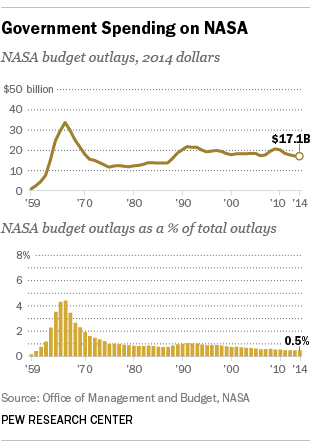
space craft, particularly German, Japanese, British, and French astronauts. Nixon supported increased international cooperation in space, but he thought that should primarily mean flying foreign astronauts on U.S.Nixon’s 1971 budget included a 10 percent reduction for NASA, so the agency was not rewarded for the success of Apollo 11.Nixon wanted former astronaut Frank Borman, commander of Apollo 8, to be the next NASA Administrator, but he had to settle for NASA Deputy Administrator Tom Paine.He made a great effort to ensure he was fully identified with the mission and its success, and he never once mentioned John F. Nixon saw the Apollo 11 mission as an opportunity to tie achievements in space to his foreign policy goals, which he gave much higher priority.I have included a few interesting tidbits, though there are plenty more in the book: Professor Logsdon briefly described the events of Nixon’s presidency as they related to space, revealing many fascinating anecdotes.

During this time, however, NASA’s efforts did include increased international participation in U.S. Under Nixon, NASA became just another domestic program, and the agency’s budget decreased even as it retained ambitious goals. Professor Logsdon says that Nixon’s lasting imprint on the space program was an end to human exploration of space beyond low Earth orbit in the twentieth century, and he sees the Nixon Space Doctrine and more ambitious human space exploration as incompatible.

Space expenditures must take their proper place within a rigorous system of national priorities.
#NASAS BUDGET SERIES#
Pondering the future of NASA and its sustainability, Nixon said, “We must think of as part of a continuing process… and not as a series of separate leaps, each requiring a massive concentration of energy. Logsdon cites a statement issued by President Nixon on March 7, 1970, as the best illustration of Nixon’s “Space Doctrine,” suggesting that the tenets of this doctrine have remained the core of U.S. Kennedy, when considered over the longer history of the agency. Professor Logsdon offers the provocative argument that President Nixon had a more lasting impact on NASA than John F. But Logsdon takes the tale a step further, using his extensive knowledge of space policy and many years of experience in the space policy community to examine the implications of the Nixon Administration’s decisions. Professor Logsdon spent the last several years poring through archival materials and conducting interviews to unveil a detailed account of the activities in President Richard Nixon’s White House, which certainly makes for a fascinating story. Professor Logsdon spoke about Richard Nixon's space legacy and previewed his upcoming book titled After Apollo: Richard Nixon and the American Space Program, which is due for release by Palgrave-MacMillan in March 2015. On September 22, I attended a talk by George Washington University Professor Emeritus and Planetary Society Board Member John Logsdon at the National Air and Space Museum in Washington, D.C.


 0 kommentar(er)
0 kommentar(er)
